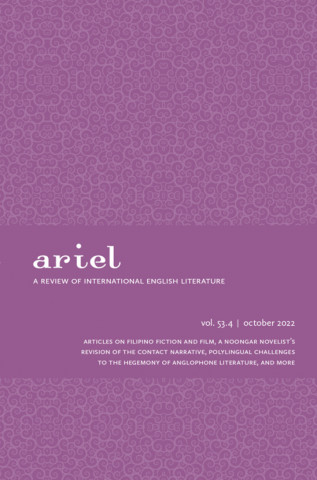Staging Translation: The Polylingual Narratives of Derek Walcott and Rabih Alameddine
Keywords:
Rabih Alameddine, Derek Walcott, translation, local and global, multilingualismAbstract
This article responds to the implications of translation, circulation, and readership in a global market dominated by particular linguistic superpowers. To interrogate the role of Anglophone literature within the contemporary global context, I examine the literary practices of authors who compose their works in English, but in a way that complicates the language’s hegemony. Focusing on the staging of translation in Derek Walcott’s poetic sequence “Sainte Lucie” (1976) and Rabih Alameddine’s novel An Unnecessary Woman (2013), I demonstrate methods through which Anglophone writers can enact a polylingual consciousness. I argue that the English content of the first-person narration in the two texts functions as an entryway through which the authors transport monolingual readers into the transitional linguistic space of a translator. Through their relational, rather than hierarchical, approaches to translation, the translator-narrators in these texts unsettle market expectations and destabilize the local-global dichotomy. Ultimately, the article exemplifies how Anglophone writers can reject the premises of a philological tradition that partitions linguistic environments and instead, like these two narrators, train their readers to adapt to relations and multiplicities, revealing the tensions in the spaces between linguistic and cultural worlds rather than allowing any one world to fully absorb another.


